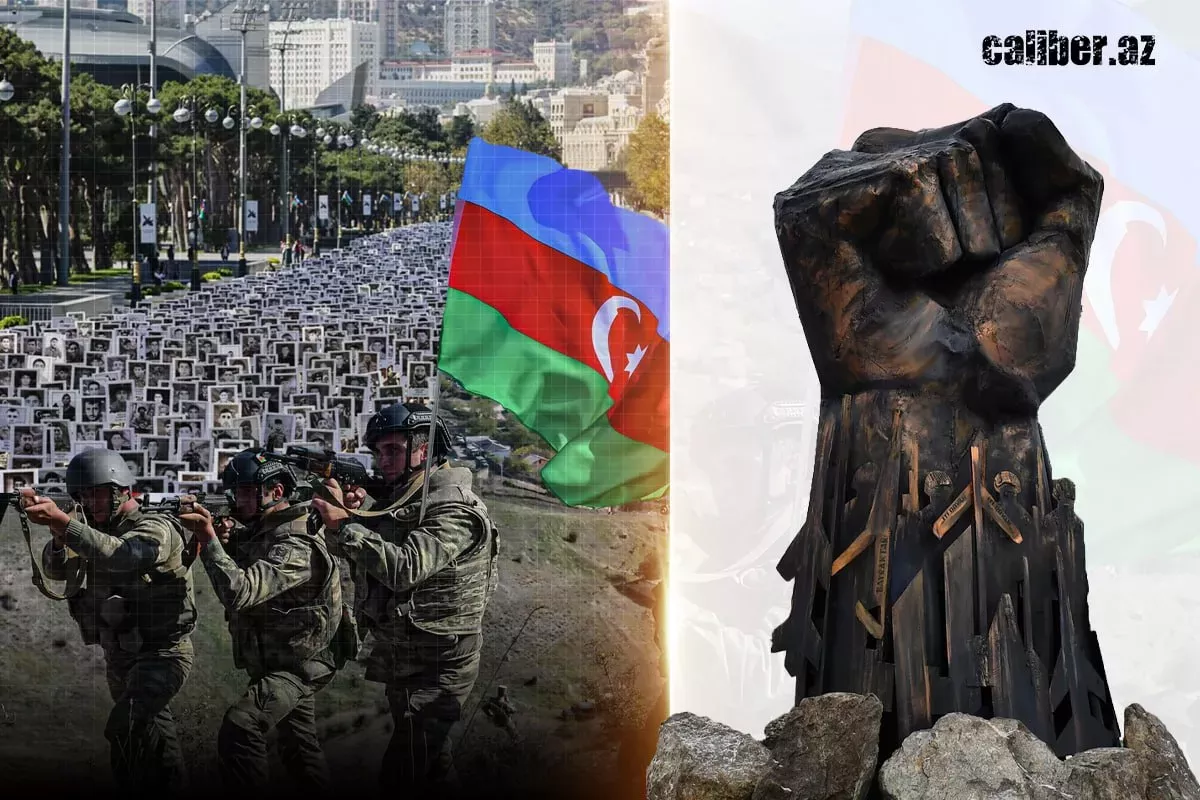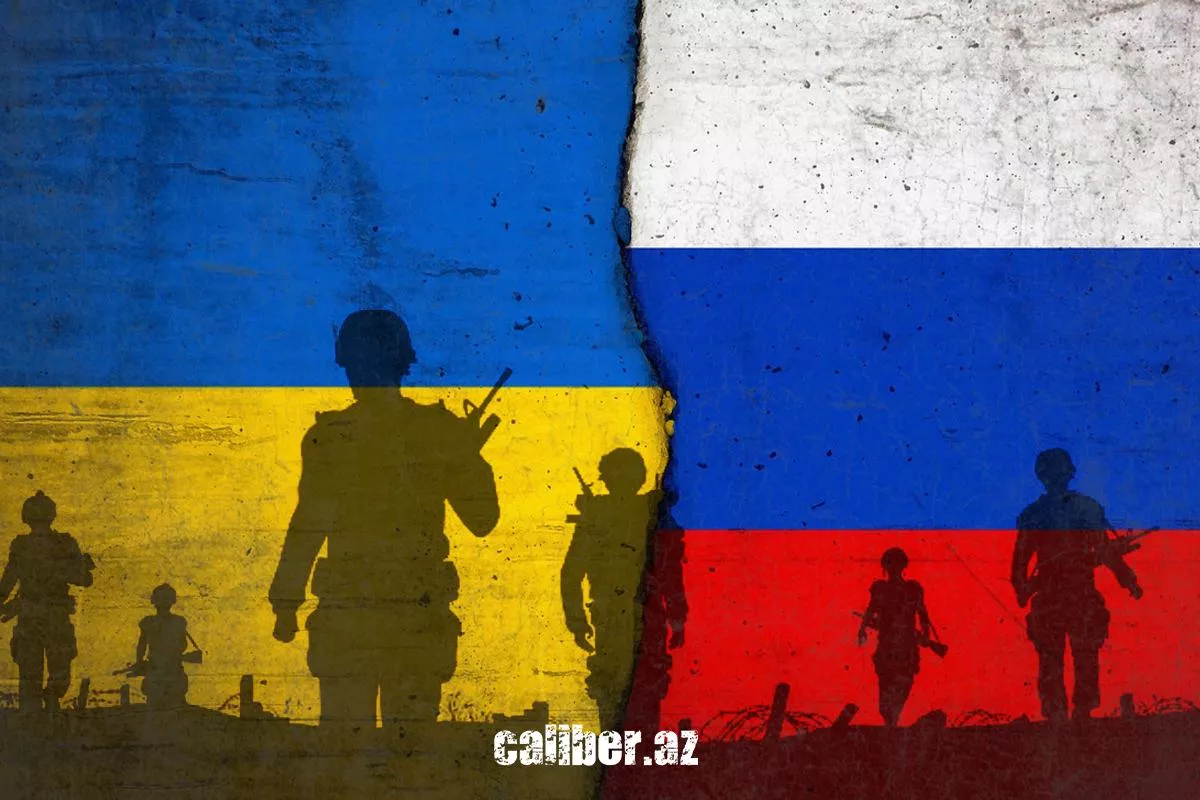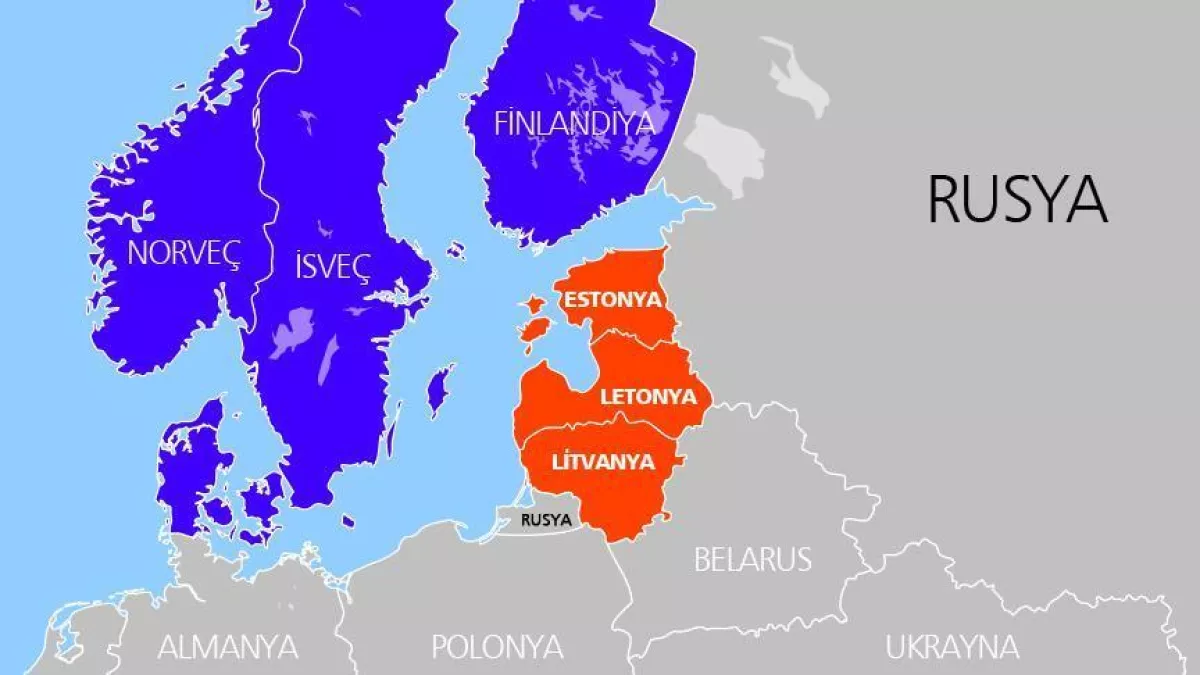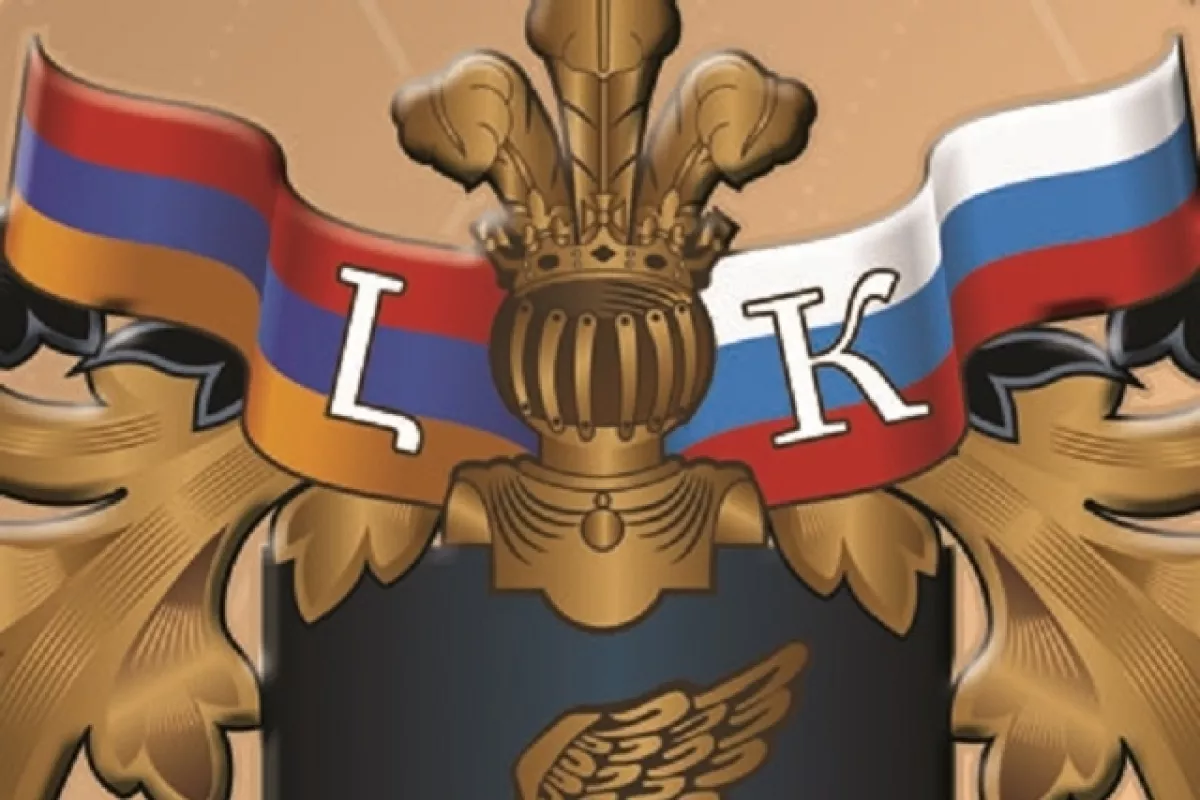Russia must accept Azerbaijan as truly independent state Analyst on Russian-Azerbaijani relations
In an exclusive interview with Caliber.Az, Russian political analyst and international relations expert Grigory Trofimchuk offers a candid assessment of the evolving Russian-Azerbaijani relationship. He discusses the impact of regional geopolitical shifts, the challenges posed by Moscow’s current stance, and the prospects for future cooperation amid changing realities in the post-Soviet space.
— What has happened to Russian-Azerbaijani relations? Why, in your opinion, has Moscow stopped recognising where Baku’s red lines begin? This concerns Russia’s approach to the AZAL plane disaster, the deaths of Azerbaijanis during detention in Yekaterinburg, and other factors... What has happened to Moscow’s strategic thinking, which previously had some flexibility in building relationships with partners and neighbours in the region and the ability to compromise?
— Let us rewind to an even earlier historical point and say frankly that the state of Russian-Azerbaijani relations is a direct consequence of changes in the post-Soviet space starting from 2014. Azerbaijan did not initiate these processes. However, looking at everything that has happened, Azerbaijan gained the full right to legitimately raise the question of the liberation of Karabakh. And it did so because international law was on its side.

After 2020–2023, Azerbaijan has grown even stronger by an order of magnitude, which has allowed it to become the leading state in the South Caucasus and, moreover, to control the communication routes linking this region with the Middle East and Central Asia, including access to China.
All of this is a direct consequence of the victory in the Second Karabakh War, whether someone likes it or not, including Russia. This is simply a historical fact. Yes, to a large extent, Baku took advantage of the evolving political situation and the historic moment, but that is exactly what politics is for true professionals — to understand where, how, and when unique opportunities arise for the government and the people, opportunities that fate sends only once.
What you are asking about, I repeat once again, is not trivial, far from trivial, but only details of this overall process. Many Russian commentators behave inadequately, thinking that someone can be "pushed under the bench" to restore everything to how it was, “like in grandma’s time,” but that does not happen. By doing so, they only worsen Russia’s position and, more importantly, Russia’s image itself, which is now almost impossible to restore. For example, right now, as I give you this interview, I realise that the reflection of such an image automatically falls on me as a Russian.
Therefore, they will have to either accept Russian-Azerbaijani relations as they currently stand or, no less, prepare with their own hands—let’s be frank, provoke—yet another serious destabilisation on another border of the Russian Federation. It seems that Azerbaijan and Türkiye are not planning to attack Russia, and moreover, Türkiye remains one of the main “oxygen masks” for Russians—so there is no need to push the situation into a dead end. However, I am not sure that the most radical activists can be calmed down; now, that is hardly possible, as the train of hatred is picking up speed. I will say more — modern Russia has not yet seen such destabilisation in interethnic relations and such hostile attitudes toward “non-Russians.” This will end badly. The authorities often follow the lead of a group of radical activists because they are unable to curb such sentiments, considering the overall development of the situation, which is evolving differently from what the officials would like.
In recent years, thanks to certain experts (I will not name names; there are too many), a view has prevailed in Russian public opinion that the tactic should be “Stricter! Stricter! Even stricter!” This approach is contraindicated for Russia itself, not to mention foreign relations, including relations with Baku, and, as I believe, future historians will agree. When they look at the results, they will find many confirmations of immutable classical rules in our time.
As for the Russian-Azerbaijani Declaration on Allied Interaction, which is often mentioned—mostly because of the historically interesting date it was signed, which itself, however, says nothing and symbolises nothing—it is obvious that Baku will not act like Yerevan: here, the mentality and political culture are completely different. And if Baku suddenly decides to repudiate it, it will do so openly, without spending years looking for a suitable pretext.
Regarding the so-called “red lines” in relations between different countries, I would generally pay no attention to them; this concept has completely discredited itself in recent years. All key, fateful events, as we see, happen unexpectedly and outside these formal warning boundaries. One or two crossings of such lines without real consequences for the violator destroy the entire principle of “red lines” immediately and forever.
— Recently, a wave of chauvinistic rage directed at Azerbaijan swept through social media and Russian media outlets. Moreover, it has barely subsided and continues to rage to this day. In one of your social media posts, you aptly described this phenomenon as a “festival of popular fury.” What, in your opinion, was the trigger for this “festival of fury” among Z-patriots and a number of Russian media? Was it simply the Azerbaijani president’s reiterated position that “occupation is unacceptable,” and the fact that Baku does not support Russia’s actions in Ukraine? Where does all this hatred come from?
— When a new historical and political era, which also affects the balance within the former Soviet space, asserts itself more visibly and sets its boundaries — including through new and repeated wars — the sharpness of attitudes toward Azerbaijanis will decrease, if not disappear altogether. Geographically, Azerbaijan will remain in its place, but it will be engaged in new affairs that will completely reshape the old ones, which will fade into history. But at moments of rupture, when all the many usual connecting hoses and cables are cut or broken, such things naturally happen. But this is only a stage of separation, and it is inevitable. Russians will have their own very pressing matters, and they will no longer be concerned with Azerbaijanis, the diaspora, and so forth.
But for now, we live in the here and now, and therefore any insistence by Azerbaijan on its interests as a truly independent state provokes waves of outrage — like, how can this be, we are not being considered the final authority. But they will have to get used to it; the future is inevitable.

Regarding Ukraine, to answer your question, I can say only one thing (I could say more, but I am quite limited by the Russian political “vocabulary”): practically all of Russia’s close neighbors—not just Azerbaijan—have been cautiously and for a long time waiting to see how this problem would develop, but ultimately, at different speeds, they are beginning to publicly and openly express their stance on it.
Russia should have soberly realised that sooner or later this would start to happen. And now it is happening. In the autumn of 2013, when many were still alive, I tried to speak loudly and clearly about this, but officials heard nothing, so the consequences of the creative decisions not made then are now automatically coming into effect. I don’t recall any other Russian experts directly warning about this (I do not mean the so-called Russian liberals here—they are always against everything, no matter what their own ideologically aligned government does).
In general, Azerbaijan remains one of the main contenders for the former Soviet republics to become a stable and independent state in the future. Such an opportunity will come to very few in this space, only a handful. And this prospect also displeases some.
— Another thought of yours: “The main thing here is not to get lost in the trees, in the numbers. After the Second Karabakh War, Azerbaijan became number one. But not after Ukraine, rather in the South Caucasus as a whole. Once, Georgia was number one for the West here, then Armenia was for Russia. Azerbaijan has always received little attention, I would even say undeservedly little. And now, objectively, Azerbaijan is first, not second or third. It will only be necessary to get a 'Third Ukraine' in Central Asia at a similar brisk pace, and then the box will be full, it will close. However, I have already said this before. You just need to take my book ‘AZy: Discovering Azerbaijan’ (2006) and, without even opening it, look at the back cover.” So, what do you think will happen to Russia if, as a result of misunderstanding the situation, the “box” does close?
— I have already partially answered this in my previous response. If you look at Russia’s immediate neighbourhood (some painted patriots haven’t even seen a map), we see that strategic problems are arising almost all around its perimeter—and I am putting it mildly. Let’s look from left to right.

The Baltic states – no comments here, their position has long been well known. In the same direction, the Kaliningrad “problem” is emerging, which everyone, including the Russian leadership, is only beginning to talk about now, although I wrote about it in my book back in 2007 and circulated it among officials at the same level. Today, it may simply be too late.
Belarus remains without comments due to the complementary nature of our bilateral relations. But looking at the situation as a whole, everything could change in a historical second.
Ukraine, the entire southwest relative to Russia — that’s clear without further explanation.
The South Caucasus: thanks to Azerbaijan, things here are finally becoming clear as well, but in its own way. And it’s becoming clear that Azerbaijan has taken the centre of the entire Caucasus, Caspian, Asian, and Middle Eastern hub, no less. It is not yet fully clear how it will bear this role and who might prevent it (certainly not Russia, which has its own problems). But the beginning has been made.
Central Asia, especially Kazakhstan with its huge border—which is much longer towards Russia than Ukraine’s—is the main unresolved question both for the world and for Moscow. But no one will leave this strategic knot of the Earth in peace anymore. That is why, briefly speaking, the “box” for Russia is ready to close any moment now. There is also Mongolia, which receives undeservedly little attention. But that is a separate issue because this topic leads us to Greater Asia and the Far East.
So, in fact, we are already lost in these “three pines”—the West, the South, and the East. Within Russia itself, the attention paid to these processes is not of the kind that the very complicated situation demands. Yelling and waving hands here is strictly contraindicated precisely because of the vast territories over which the fate of Russia itself will be decided.
Unfortunately, however, no other style of problem-solving remains here. Up to now, all our so-called “propaganda,” the informational style, is, in my opinion, “in the name of Zhirinovsky”—a festival of satire and humour. In reality, it has long ceased to be funny, but this information train cannot be stopped; ringing laughter and mockery of neighbours, both near and far, resound everywhere. We are already witnessing the political results of this relaxation live, so to speak, on air.
— What do you think about the logic and “code of honour” of Russian propagandists like Konstantin Zatulin? It’s practically obvious that with his words he is fueling the flames of real, not just informational, interethnic conflicts in the South Caucasus and other regions. For example, recently he said that “it’s better to be friends with Azerbaijan, but it should have been put in its place in time.” And, in his view, that’s how Russia should treat all its friends to avoid consequences. With just one sentence, Zatulin revealed the essence of a purely imperial mindset that he tirelessly preaches: that is, the same approach should be applied to Kazakhstan, Armenia, Georgia, and practically all countries of the post-Soviet space.
The most interesting part is that this man is a deputy, the first deputy chairman of the State Duma Committee on CIS Affairs, Eurasian Integration, and Relations with Compatriots. Am I right to think that if a person with such rhetoric leads such an important Duma committee, then Russia’s “Eurasian integration” with countries and peoples who are not titular according to Zatulin must be in poor shape?
— There are a huge number of people with such attitudes in Russia, and many of them hold quite high positions. Therefore, everything that is happening now with the country, this so-called interim result, is also a product of their actions. No one wants to take on this kind of overwhelming historical responsibility, but it will have to be done — now it’s inevitable. I have been observing Konstantin Zatulin for quite some time, starting from such a pivotal place as Crimea, back in the early 2010s (I believe there was one of the most interesting discussions about the Russian language in Yalta in 2011, in the presence of all the local deputies at that time). It was clearly visible (unfortunately not to everyone in Russia) how communication with people happens there, how people of various levels react to such theses — in general, how things actually work in practice when trying to bend the situation to one’s will.
There is a strong tone of moralising here, although such an approach should be excluded above all. Moralising and lecturing — that’s what irritates outsiders the most, even though there are fewer and fewer real grounds for it.

But the problem with Armenia is a much more recent example. The fact is that to maintain stability in Russian-Armenian relations, the “Lazarev Club” was established long ago, which includes many responsible high-ranking officials. Today, the very same self-styled patriots are shouting that Armenia has “turned away” from Moscow, yet no one asks questions of those who, within the framework of integration platforms, preserved something there for decades. Neither the Armenians nor the Russian authorities have such questions. Well, fine, great — we move on, watching the catastrophes unfolding for Russia through the train window, since everything seems to be going so well and no one is held accountable. Not only is no one held accountable, but they also continue to teach others “how it should be done,” as if nothing happened.
All this will continue to happen further, including with Azerbaijan, because the information policy in Russia itself, as I have already emphasised, remains unchanged. The people who have failed everything on every front not only try to lecture others but threaten almost everyone directly. Fifteen years ago, such a thing was simply unimaginable: how? Russia? Allowing such approaches in its name? But now this is the norm of life. Despite all the officially declared interethnic and interfaith love and friendship, the reality looks different.
I can judge this in part because, as an expert, I was practically familiar with the entire leadership of the diasporas both within the framework of the Moscow House of Nationalities and at many other events. I have also met with Russian compatriots everywhere and often — in Azerbaijan, Georgia, and so on. Interestingly, both groups have their questions for Russia, and in a friendly manner, but such an interested multilateral dialogue is now almost impossible and for many Russian activists is a historical “relic.” Well, that’s why now you get “hit” from all sides. It’s very simple.
— Despite all the disagreements, Baku was among the first to express condolences over the numerous human casualties resulting from the crash of the An-24 passenger plane in the Amur region. What steps should be taken to try to improve Russian-Azerbaijani relations? Is it possible to rehabilitate them in any way?
— I would note that such gestures are one of the basic norms of international life and interstate relations. But it’s not just that: every official, including the president, is simply a human being who could face the same fate at any moment—many travel by plane. When expressing condolences, people involuntarily empathise with the tragedy, imagining themselves in those terrible circumstances. Everyone has their own stories related to this. For example, one evening I was talking to a well-known person, and the next morning came the news that the plane he took shortly after our conversation had crashed. This is precisely the basis for such reactions, not mere formality. That’s why many respond to catastrophes anywhere on Earth as if they were their own.
There is little left to change in relations with Azerbaijan given the global shifts occurring across the Eurasian space, where everyone is acquiring a new status that does not satisfy all parties and is beginning to shift the tectonic plates of politics. For example, Russia could change its information policy, but as I have already noted, in practice this is very difficult because the systems move on a course set once and for all. Therefore, all this remains only well-wishing.
Overall, Azerbaijan stands on its own now, and this must be accepted as a fact. It is on this fact that we need to build not even renewed but entirely new relations, excluding everything that hinders us.
Incidentally, as an expert, I have been building such relations with Azerbaijan since the 2000s, so I know what I am talking about.








